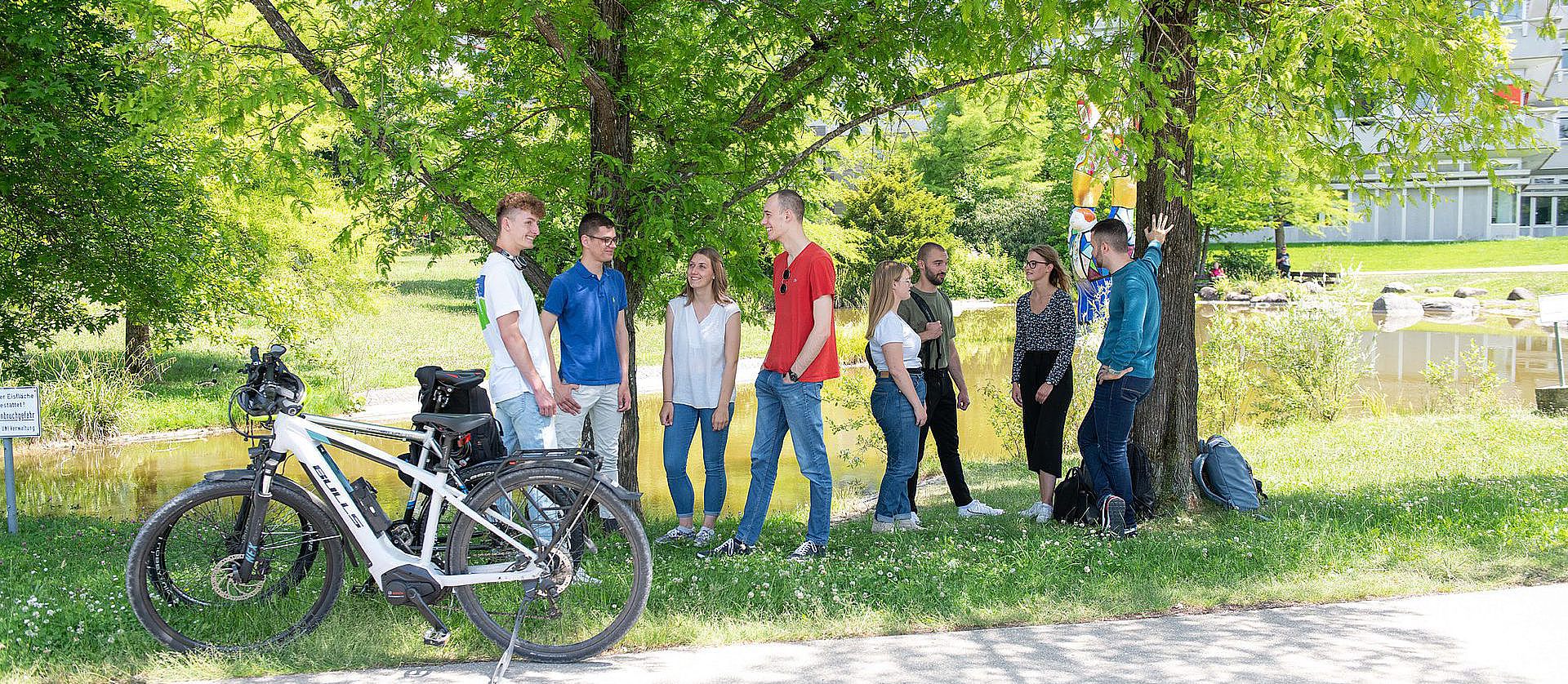Inventing new technologies
and doing something for people at the same time

The work of the biomedical engineer focuses on solving biomedical tasks by technical means. The master's degree programme in Biomedical Engineering is research-oriented and builds on the bachelor’s programme in Biomedical Engineering. The programme aims to provide a qualified education at the interface between electrical engineering, computer science and health sciences in order to be able to make independent and innovative contributions to research and development in biomedical engineering. In-depth knowledge of biomedical engineering, electrical engineering, information technology, computer science, medicine, psychology and biology is taught with a focus on the research priorities of the disciplines.
Master of Science (MSc)
120
4
and doing something for people at the same time
In the consecutive Biomedical Engineering master's programme, academic training is continued in a multidisciplinary environment. Currently, there are three areas of specialisation, organised according to key technologies in Biomedical Engineering ("Sensors & Systems" and "Signals & Data") and health applications ("Mental Health Technologies").
The master's programme begins in autumn and spring and is offered bilingually in German and/or English. Students graduate after achieving 120 ECTS (credit points) and successfully defending a master's thesis.
In order to enable lateral entrants (BSc from other Engineering disciplines, Physics or Computer Science) and international students without a background in Human Medicine to join the programme, the first semester is designed in such a way that the Human Medicine topics can be completed without additional credits. Only one additional credit point must be invested if the concepts of human research such as ethics, Good Clinical Practice (GCP), Good Manufacturing Practice (GMP) also need to be completed.
The work of the biomedical engineer focuses on solving biomedical challenges using technical means. The BMT master's programme is research-oriented and builds on the Biomedical Engineering bachelor's programme. The aim of the programme is to provide qualified education in Medical Engineering at the interface between Electrical Engineering, Computer Science and Health Sciences in order to be able to make independent and innovative contributions to research and development in Biomedical Engineering. The programme provides a sound knowledge of Biomedical Engineering, Electrical Engineering, Computer Science, Medicine, Psychology and Biology with a focus on the research focus of the disciplines.

Qualified training in medical technology at the interface between electrical engineering, computer science and health sciences
Biomedical engineering encompasses many subject areas, much more than a single university could cover. A great way to broaden your horizons in one subject area is to study at a foreign university. Students at Ulm University can apply for one or two semesters abroad at numerous universities, both throughout Europe as part of the ERASMUS program and outside Europe. If you don't want to attend lectures, internships and dissertations at other universities are also possible.
Are you interested in a stay abroad?
Information can be obtained from the International Office or the mobility officer for Engineering Sciences.
Further information on funding programs and scholarships, list of partner universities and internships

Technology and artificial intelligence is playing an increasingly important role in medical research and care. Connectivity of medical devices, automation of processes, personalisation of treatments, innovative sensor technology and procedures: All of these topics require engineers with multidisciplinary training in Biomedical Engineering to drive these developments forward, test them and transfer them into pre-clinical and clinical applications. The biomedical engineering sector is an important and rapidly growing industry in Germany, and the demand for well-trained specialists is constantly very high.
The application areas are therefore very broad.
Some examples:
Welcome to the most liveable city in Germany. Albert Einstein's birthplace is a unique combination of science, leisure, top employers and culture. Top locations and events such as the Ulmer Zelt, Nabada or the Donaufest attract visitors to the quaint streets. Here you feel at home!
Copyright: City of Ulm